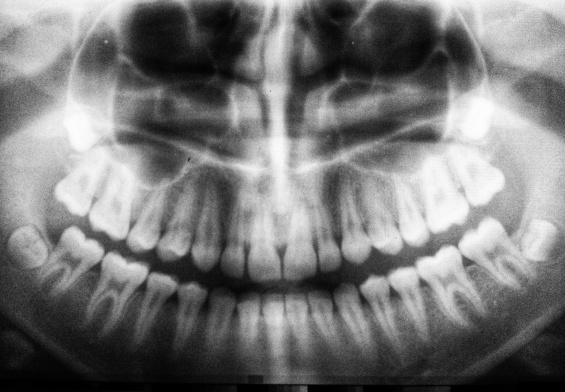Throat cancer, a broad term defining many cancers that develop in the throat (pharynx), larynx (voice box), or tonsils, is an incredibly serious, potentially life-threatening health concern. While it’s not as widely discussed as other types of cancer, it can have just as dramatic of an impact on someone’s health. Throat cancer prevention involves understanding its risk factors and using strategies to mitigate these risks. In this article, we will talk about the causes, risk factors, and prevention strategies to help you take proactive steps towards throat cancer prevention.
Understanding Throat Cancer
There are several types of throat cancer, like oropharyngeal cancer, hypopharyngeal cancer, and laryngeal cancer. Their symptoms can be quite different depending on the type and stage of cancer but often include a sore throat that doesn’t get better, difficulty swallowing, hoarseness, ear pain, and lumps in the neck. Early detection and prevention are incredibly important since they significantly improve treatment outcomes.
Risk Factors
Numerous risk factors increase your chances of developing throat cancer. Understanding these factors is the first step in throat cancer prevention.
Tobacco Use
Tobacco use, including smoking cigarettes, cigars, and using chewing tobacco, is one of the throat cancer risk factors. Tobacco products contain many carcinogens (cancer-causing chemicals), and exposure to carcinogens causes genetic mutations in throat cells, eventually leading to cancer.
Alcohol Consumption
Consuming too much alcohol is another significant entry on the list of throat cancer risk factors. Alcohol can irritate the cells in the throat. Therefore, drinking too much too often can cause them to mutate, leading to increased risks of throat cancer.
Human Papillomavirus (HPV)
Human Papillomavirus (HPV) is a common sexually transmitted infection, and researchers have linked the presence of HPV and throat cancer risk increases. As a result, cases of HPV-related throat cancers are increasing, especially among younger people.
Dietary Factors
Diets without enough fruits and vegetables can also contribute to throat cancer causes. Nutrient-rich foods contain antioxidants and vitamins that protect against cancer, so not getting enough of these vitamins or antioxidants is another one of many throat cancer risk factors.
Occupational Hazards
Exposure to certain carcinogenic chemicals and substances, like asbestos and certain industrial chemicals, can increase the risk of throat cancer. People working with these chemicals should take precautions to minimize exposure, like using PPE (personal protective equipment).
Prevention Strategies
There is no guaranteed method for 100% preventing throat cancer, but there are several ways you can significantly reduce your risk.
Quit Smoking
Quitting smoking is one of the most effective ways of preventing throat cancer. You can use many resources for help quitting, like medications, nicotine replacement products, support groups, and counseling. This should go without saying, but if you don’t smoke and like keeping your throat cancer risk factors minimized, don’t start.
Moderate Alcohol Consumption
Drinking alcohol in more moderation also goes a long way towards preventing throat cancer. To maximize the throat cancer prevention benefits of moderating alcohol consumption, men can’t have more than two drinks per day, and women can’t have more than one.
HPV Prevention
The link between HPV and throat cancer means protecting yourself from HPV can also protect you from throat cancer. You can protect yourself from HPV by practicing safe sex, like limiting your number of sexual partners and using contraceptives like condoms. Additionally, there’s an HPV vaccine available and it’s recommended for teenagers and young adults.
Healthy Diet
Make sure to eat a complete, varied diet with lots of fruits, vegetables, and other nutrient-dense foods to protect against throat cancer. These foods provide essential vitamins, minerals, and antioxidants that support overall health and protect your cells from becoming cancerous.
Regular Medical Check-ups
Regular medical and dental check-ups/screenings are important steps in throat cancer prevention, especially for those with high-risk factors. Early detection of precancerous conditions or early stages of cancer significantly improves the chances of successful treatment. If you have symptoms such as a persistent sore throat, difficulty swallowing, or unexplained weight loss, try to find an emergency dentist.
Lifestyle Changes
Changing out your lifestyle for a healthier one can further reduce your risk of throat cancer.
Exercise and Weight Management
Regular physical activity and staying at a healthy weight are important for overall health and throat cancer prevention. Exercise boosts the immune system, reduces inflammation, and maintains a healthy weight. All of these factors go a long way toward reducing throat cancer risk factors.
Avoiding Occupational Hazards
If you work in an environment with exposure to harmful, carcinogenic chemicals, there are steps you can take to protect yourself. Use protective equipment, follow safety guidelines, and make sure your workspace is properly ventilated.
Managing Acid Reflux
Gastroesophageal reflux disease (GERD) can damage your esophagus’s lining, which increases the risk of throat cancer. Fortunately, you can manage GERD with dietary changes, medications, and changes to your lifestyle, reducing your exposure to throat cancer causes. Avoiding spicy foods, eating smaller meals, and not lying down right after eating are also some effective GERD management strategies.
Preventing Throat Cancer
Throat cancer prevention involves lifestyle changes, managing risk factors, and regular medical and dental check-ups. Quitting smoking, moderating your alcohol consumption, protecting against HPV, maintaining a healthy diet, and staying vigilant about medical screenings all play a large role in preventing throat cancer. Awareness of throat cancer causes, and proactive health management are important in preventing this potentially life-threatening disease. Taking these steps helps with throat cancer prevention and leads to overall health and well-being improvements.
It’s never too late to make positive lifestyle changes. Speak with your healthcare provider for advice and support in your journey towards a healthier life that matches your specific needs.




